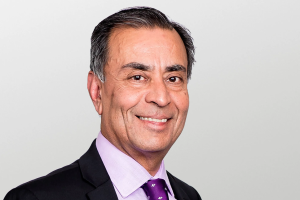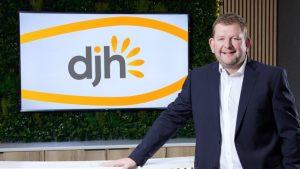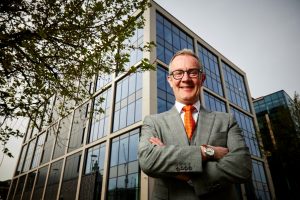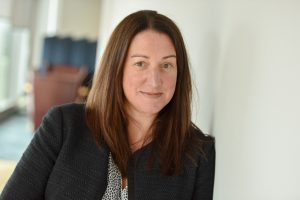Creating and sustaining a high performance culture
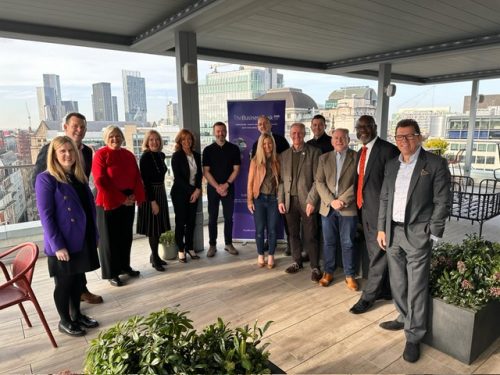
TheBusinessDesk.com worked with Natural Direction on a round table discussion about how leaders prioritise and drive winning business.
Held in the centre of Manchester at Gilbanks, 11 York Street, the discussion focused towards financial and professional services firms operating in the North, but with technology, manufacturing and construction companies represented too.
Natural Direction is one of five Zenger Folkman accredited Leadership training providers in the UK. Its clients include Atos, Deloitte, EY, and Heathrow, and in the US they run Deloitte’s Leadership Academies, providing training and support to the next generation of leaders coming though their ranks.
The discussion looked at the challenges and opportunities for leaders in a world of constant change and how firms have adapted management strategies in order to attract, retain and stimulate their talent. Particular given the recent shifts in working patterns to a hybrid model.
We may think it’s working, but a study by Edelman/HP published in September 2023 of 15,600 employees in 12 different countries found that only 27% have a healthy relationship with work and 71% are actively looking for new roles.
We kicked off with stories about how the businesses there have adapted their leadership in order to particularly embrace employee engagement to foster a more dynamic, committed, and motivated workforce.
Here are some key insights from the people around the table.
Martin Coburn, Natural Direction: Having spent the last 30 years working with various different organisations on raising leadership capability, and the behavioural end of change, you learn as much from your clients as you learn from your own studies and experience.
One simple conclusion is that leadership tends to get put into this lovely little bracket called soft skills, but it’s a really hard thing to do. When you get it right, there is absolutely no question there is a direct correlation between better leadership, and better results.
Jo Ahmed, partner, Deloitte: One of the biggest challenges is how you build affinity and a connection amongst your team and a real understanding of your business, the organisation, your values and how we live those values.
We really try and be completely transparent with all our employees around what’s happening in the business, our direction of travel, and we allow them to have a real voice in how we do things. So I’ll give you two examples. The first one is we’re about to move into our new office in June, in the city centre. And in designing that new office, we invited all members of staff to feed in to the design process. We asked them, how do you want the office to look and feel? What is important to you in an office environment? And how are you going to use the space so that it wasn’t just a shiny new space?
The second is, we run something called quarterly general meetings. It’s our opportunity to really share, to shine a light on our diverse networks. It’s just 45 minutes of being able to tell the story of what’s happened over the last few months and trying to build that affinity when we have a constant stream of movement in the business.
Will Lewis, founder and chief executive, OBI Property: We’ve just finished our new office actually, and it was very, very collaborative. Our own design team designed the office but we surveyed everyone in the business about it. A lot found it really, really tough after COVID, that period where people’s perceptions of work changed, and as a leader it was difficult to read.
Work seemed to slip down the list of priorities.
We surveyed everyone and the thing that people in our office wanted was a new working environment. So we invested a lot in the new office and got it right, so every space could double up, or triple up, for different uses. The impact was massive, in terms of people wanting to come back,and people being proud of it, inviting people to the office rather than meeting them outside for coffees. So for us, the impact of the working environment has had a hugely positive impact on business and clients.
Mick Frankish, North West practice lead, Grant Thornton: Yes, building on that, we came out of COVID and moved into a new office in the new Landmark building. It really gave everybody that boost.
Sure, there’s nothing better than working at home on a Friday, but the affinity you create by being around the office, I don’t think has changed and in some ways it’s more, if people don’t feel they have to be there.
A big part of leadership now is having the goals aligned, as across the board of all your different people. One thing that we’re really pushing on now is a real focus on efficiency, what can we do better, and then whatever the benefit is, how we split between the firm and individuals, and if we can get to a place where it’s a nine day fortnight, or, or taking a Friday afternoon off, however, that might evolve.
We’ve got to be innovative as leaders with things like that, to get everyone focused in the same direction, because gone are the days of giving someone a beasting.
Caroline Grant, managing director, Slalom: We’re proud of our collaboration space, it is awesome. But it’s the people, and I think a lot about our organisation is its people and as we’re a consulting company at heart we do work with customers and clients and those face to face interactions are super important.
We’ve got a great office, but it is still difficult to get people in there. So we have to be really deliberate about encouraging people to come in.
Yes, it’s important. They like to be in the office space, it’s a really good environment to be in. But why are they in? Who are they learning from? Who are they meeting? How do we make it fun? And so it is a constant, really thought out plan, about how we make those connections on a face to face level.
It sounds really basic, but actually, that has really helped to remind people about why we do things.
Jim Liptrot, managing director, Howorth Air Technology: We’ve got a different challenge. Because a lot of our people naturally work outside of the office, the service engineers, sometimes globally. We introduced regular company wide briefings. The first meeting of the quarter is a traditional business brief; what we did in the last quarter, what we’re looking forward to doing. The second one of the quarter is actually interactive. So we always come up with whatever we’ve got from the employee survey, where things have had lower scores in the survey.
Then in the final one we will have a spotlight session, looking at somebody like the Bolton Lads and Girls Club, or the Bolton Deaf Society. And then we do a mini feedback session and the engagement we’ve got is absolutely massive.
Charmaine O’Connor, chief executive, PP O’Connor: A lot of our employees can’t stay at home, and during COVID we were essentially still working, doing highways and getting involved building hospitals.
But what we found with the office teams was that in our business, it doesn’t really work with people working at home. It’s a big communication chain and the way that everyone networks they need to be in the office.
Also, the young people coming through, we’ve taken on a lot of apprentices and as a former apprentice myself, I know that you need the interaction of those older mentors. Being around people, learning to communicate, because a lot of the young ones can’t really communicate too well these days, they hide behind emails. So we find that the only way that you can really bring people out of themselves is to be together and really be present.
Lucy Williams, partner, JS: There’s been so much digitalisation in our profession that the skill set is changing. Be it double entry bookkeeping, reading accounts, all those things that we have done manually, is now more efficient from a digital perspective. But there are hundreds and hundreds of accountants who can’t explain them because they don’t understand the fundamental principles and because of the digitalization, we really have to strip back our training.
We’ve accepted that to build a foundation of skills that they need for the future there needs to be a balance in our businesses. From a skill set perspective, digitalization is fantastic and it’s really helping the industry in a lot of ways. But when it comes to the fundamental skills, it’s quite different.
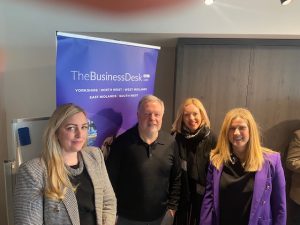
Lucy Williams, Darryl Cooke, Jo Ahmed and Beth Houghton
Rebecca Durrant, partner, Crow: In my experience it’s not necessarily the the younger end of the office that don’t want to come in, it’s the kind of middle management management level.
It’s become a bit of a cliche that older team members have a nice comfy space at home to be able to work from home and they’re not that bothered about going out for a drink after work and they’re much happier being at home more.
But you’ve got a lot of trainees that don’t mind coming into an office because you’ve got a great space. They can see each other, they’ve got breakout areas where you actually need experienced people in there for them to learn from.
So I think the challenge for us, and this applies across all businesses, not just professional services, is making sure that we are incentivizing them to come in, rather than just having a great space. Somewhere they are able to listen to their leadership to learn from them, and be valued.
Darryl Cooke, founder, Gunner Cooke: I think it all comes back to leadership. And the leader leads on the culture, the leader leads on the values and everything in it. And then everything flows from that. I think it is a current topic, hybrid working, and we have to work out how we’re going to sort that out, and we’re looking at new offices.
I love this new style of hotel residential, which we will talk about in offices, it’s great, but it is just one aspect, because people are really key to the culture of a business.
Harold Brako, office senior partner, Addleshaw Goddard: Coming out of COVID, we’ve gone to agile working 2.0, which is a happy medium between being hybrid. And it goes back to what Caroline said, professional services, we are a people business, both internally and externally. So you need to be around people, we need to go and see people in order to attract work.
And just as Jo said, we’ve seen an uptick in people coming into the office.
For us, it’s been a good learning experience.
We learned a lot in COVID, I took over as Manchester office head during and had to devise all sorts of ways to bring the office together remotely. And then coming out of COVID it was about bringing those things into the office.
We would devise lots of different coffee chats, for instance, on Teams, but they come back into the office doing those in-person sessions.
To build a positive internal culture, the senior people in the office need to be present and be seen in the office.. But also understanding that yes, people come out of COVID and they have dogs, and that we really mustn’t worry about people coming in late and going home early because we know they’ll get the job done and should be trusted to do that. Knowing that they will come in and learn from other people and help with the growth of the business by being present.
Cultural change in an organisation is also about embedding values into goals.
Beth Houghton, investment director, Palatine: We are a B Corp, and we signed up to a really intensive process to become a B Corp. If you want to sign up, you then get assessed every two years to make sure that you are still upholding those values. It’s saying that business is not just about profit, but about the impact you make on society on the environment as well. We’ve been doing this for 12 years now, it’s not something that we’ve just come to, and it’s not easy to do. So it takes a long time to embed it within an organisation as well.
I think it really helps with how we look at our investments, how we look at the staff that we employ as well and B Corp goes right from the person who greets you at reception, so they understand what Palatine is about, but the leaders have to really buy into it.
ESG is fundamental to how we look at companies. So you look at environment, social and governance, it’s a massive part of governance and how we make sure all our companies do regular surveys. It’s a massive part of how we look at investments and the value that we can add to investments as well, because if you’re doing ESG right, you’re reducing churn, you’re getting more loyal employees, getting more experienced employees. So we see that as a massive benefit.
David Bowcock, office managing partner, FieldFisher: Thinking about a lot of the things we’ve talked about this morning. If you go into our stats we can see that we’ve got high attendance amongst younger people, lower attendance amongst people with longer commutes, or in different age groups, or at different levels. You’re trying to reach out to a very broad audience with the same messages through the same channels, so the results are going to be completely random.
Whereas with ESG, I realised we can be a bit sceptical. But I found that that’s the thing that everybody’s got in common. Everybody’s got their causes in their private lives. It’s amazing what you learn about people about their charitable causes, for example.
Our charity dance event really brought people across the firm together, partners alongside paralegals, but we were doing it for all the right reasons. It was amazing. Like, that’s the one thing, you know, you can have your fresh fruit, and you can have your drinks on a Friday, and all the rest of it. But that coming together like that was the thing that a complete cross section of people engaged in.
Tim Mills, head of corporate finance, Azets: It all comes down to what you are doing in the real world. I run the North West corporate finance team at Azets, and we always have a meeting on Thursday in person. We always try and make sure we can make it, to just see each other and have a chat and discuss.
We also appreciate how different people have different working styles. We have graduates and they’re working on their phones. And there’s nothing wrong with that. That’s how they work, how they concentrate, because that’s how they started out. How they studied was totally different to the way I studied. And it’s totally different at work too and you’ve got to accept it. As leaders we have to adapt, we’re learning all the time.


